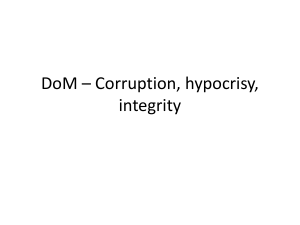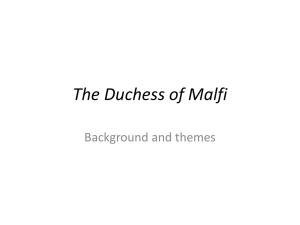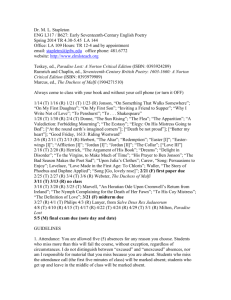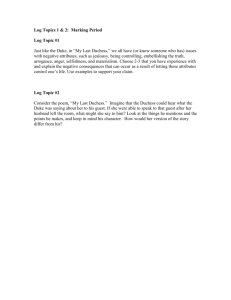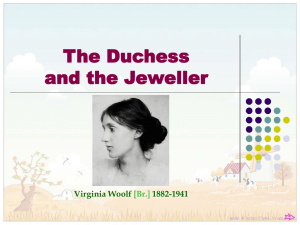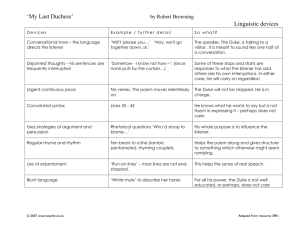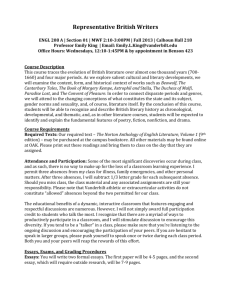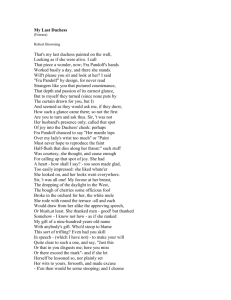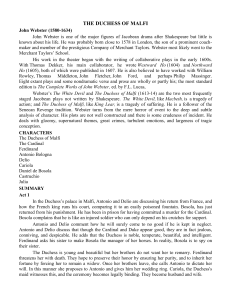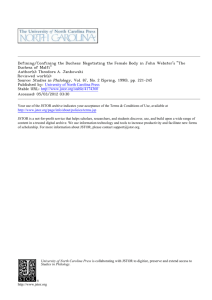Duchess of Malfi: Malcontent & Villains Analysis
advertisement
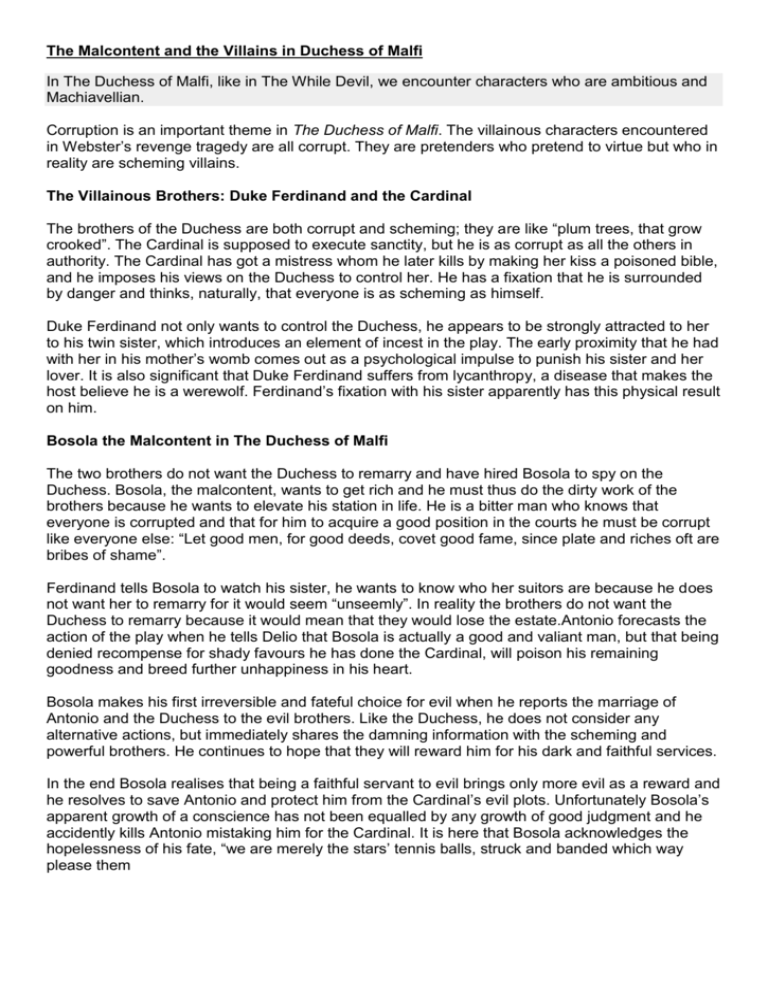
The Malcontent and the Villains in Duchess of Malfi In The Duchess of Malfi, like in The While Devil, we encounter characters who are ambitious and Machiavellian. Corruption is an important theme in The Duchess of Malfi. The villainous characters encountered in Webster’s revenge tragedy are all corrupt. They are pretenders who pretend to virtue but who in reality are scheming villains. The Villainous Brothers: Duke Ferdinand and the Cardinal The brothers of the Duchess are both corrupt and scheming; they are like “plum trees, that grow crooked”. The Cardinal is supposed to execute sanctity, but he is as corrupt as all the others in authority. The Cardinal has got a mistress whom he later kills by making her kiss a poisoned bible, and he imposes his views on the Duchess to control her. He has a fixation that he is surrounded by danger and thinks, naturally, that everyone is as scheming as himself. Duke Ferdinand not only wants to control the Duchess, he appears to be strongly attracted to her to his twin sister, which introduces an element of incest in the play. The early proximity that he had with her in his mother’s womb comes out as a psychological impulse to punish his sister and her lover. It is also significant that Duke Ferdinand suffers from lycanthropy, a disease that makes the host believe he is a werewolf. Ferdinand’s fixation with his sister apparently has this physical result on him. Bosola the Malcontent in The Duchess of Malfi The two brothers do not want the Duchess to remarry and have hired Bosola to spy on the Duchess. Bosola, the malcontent, wants to get rich and he must thus do the dirty work of the brothers because he wants to elevate his station in life. He is a bitter man who knows that everyone is corrupted and that for him to acquire a good position in the courts he must be corrupt like everyone else: “Let good men, for good deeds, covet good fame, since plate and riches oft are bribes of shame”. Ferdinand tells Bosola to watch his sister, he wants to know who her suitors are because he does not want her to remarry for it would seem “unseemly”. In reality the brothers do not want the Duchess to remarry because it would mean that they would lose the estate.Antonio forecasts the action of the play when he tells Delio that Bosola is actually a good and valiant man, but that being denied recompense for shady favours he has done the Cardinal, will poison his remaining goodness and breed further unhappiness in his heart. Bosola makes his first irreversible and fateful choice for evil when he reports the marriage of Antonio and the Duchess to the evil brothers. Like the Duchess, he does not consider any alternative actions, but immediately shares the damning information with the scheming and powerful brothers. He continues to hope that they will reward him for his dark and faithful services. In the end Bosola realises that being a faithful servant to evil brings only more evil as a reward and he resolves to save Antonio and protect him from the Cardinal’s evil plots. Unfortunately Bosola’s apparent growth of a conscience has not been equalled by any growth of good judgment and he accidently kills Antonio mistaking him for the Cardinal. It is here that Bosola acknowledges the hopelessness of his fate, “we are merely the stars’ tennis balls, struck and banded which way please them
